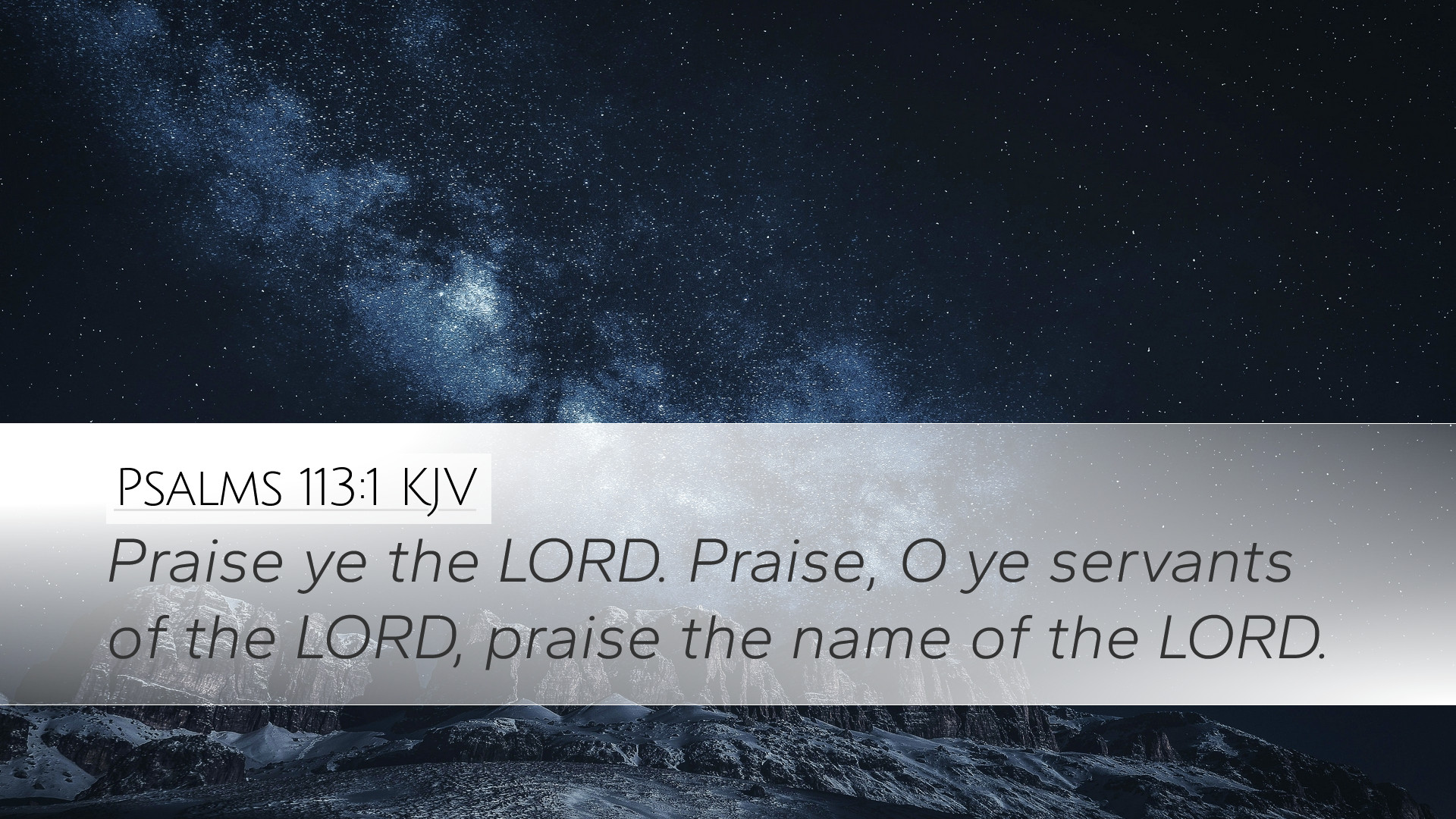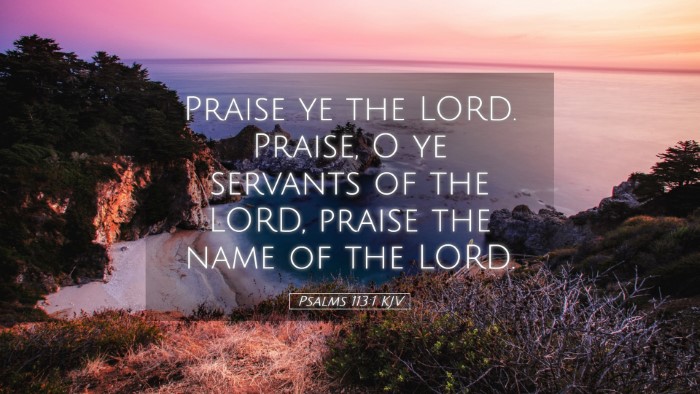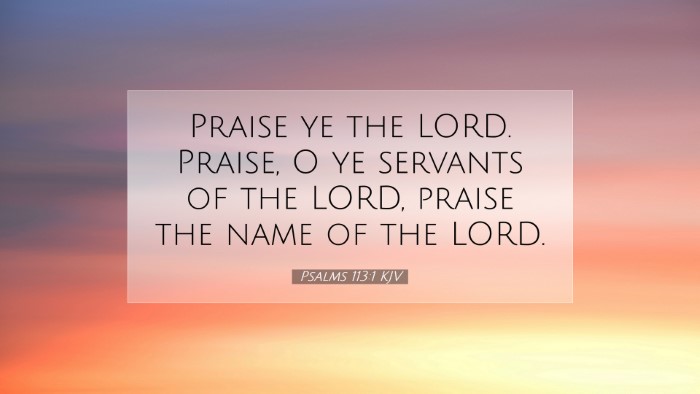Psalms 113:1 - Commentary Insights
Bible Verse: "Praise ye the LORD. Praise, O ye servants of the LORD, praise the name of the LORD."
Introduction
The first verse of Psalm 113 serves as a call to worship, summoning the servants of the Lord to extol His name. This call for praise is significant not only as an invitation but also as a proclamation of the character of God, affirming His sovereignty and goodness. In this commentary, we draw insights from esteemed public domain commentaries including those by Matthew Henry, Albert Barnes, and Adam Clarke, to enrich our understanding of this scriptural gem.
Exegesis of Psalms 113:1
1. Emphasis on Praise
Praise is a central theme in the Psalms, reflecting the heart's response to God’s nature and deeds. Matthew Henry emphasizes that the repeated calls to praise serve as reminders for the people of Israel—and, by extension, all believers—to acknowledge God’s greatness and faithfulness. This exhortation encourages a communal act of worship, rather than isolated expressions.
2. Servants of the Lord
When the psalmist addresses "ye servants of the Lord," he highlights the relationship between God and His people. Albert Barnes notes that all who serve God are invited to worship Him. This designation reinforces the notion that true service to the Lord compels acknowledgment of His supremacy. The call to "praise" suggests an action that arises naturally from recognizing one's position before a holy God.
3. The Name of the Lord
The phrase "praise the name of the LORD" carries deep theological significance. Adam Clarke explains that God's name in Scripture often embodies His attributes—His character, power, and works. Thus, to praise His name is to celebrate who He is and what He has done. The act of praising the name of the Lord also points to the significance of worship in the life of believers, as it is a vital response to God’s revelation.
Theological Reflections
1. The Universality of Praise
The psalm begins with a general call for praise, which implies that all of creation has a role in worshiping its Creator. Henry suggests that this verse sets the stage for an understanding that worship is not limited by geographical or cultural boundaries—the Lord is to be praised universally, reflecting His dominion over all the earth.
2. The Role of Worship in Community
Praising God as a community strengthens the bonds of faith among believers. As noted by Barnes, communal aspects of worship encourage unity and collective acknowledgment of God's works. This shared experience of worship becomes a testimony to others, illuminating the nature of God's character through the shared voices of His servants.
3. Spiritual Warfare and Praise
In a world fraught with challenges, the act of praising God serves as a powerful weapon against despair and discouragement. Clarke comments that thanksgiving and worship can transform atmospheres and circumstances, serving to uplift the heart and inspire faith. By directing their focus towards the Lord, believers are fortified in their spiritual journey.
Practical Applications
1. Personal Worship
This verse encourages personal engagement in worship. Each believer is called to recognize the areas of their lives where they can offer praise to God. In daily routines, cultivating an attitude of gratitude and expressing it through words, songs, and actions leads to a richer experience of God's presence.
2. Congregational Praise
Church communities can adopt this verse as a guiding principle in worship services. Fostering environments for collective worship allows congregants to experience the power of unified praise, leading to transformative encounters with God. This echoes the sentiments shared by Henry regarding the significance of assembled worship.
3. Witness to the World
As believers live out their praise and demonstrate the joy of knowing the Lord, they become witnesses in a world searching for hope. By showcasing the attributes of God through praise, they illuminate His character and draw others toward Him. Barnes emphasizes the importance of lived praise as a testimony to God’s active presence in the world.
Conclusion
Psalms 113:1 serves not only as a call to worship but as a profound invitation into a deeper relationship with God. The call to “praise the Lord” encapsulates the heartbeat of our faith. Scholars and pastors alike can draw from this verse, examining its implications for personal devotion, community worship, and the larger mission of the Church in the world. Through the insights of Matthew Henry, Albert Barnes, and Adam Clarke, this commentary highlights the enduring truth that the act of praising God is both an immediate response to His greatness and a long-term posture of our hearts.


